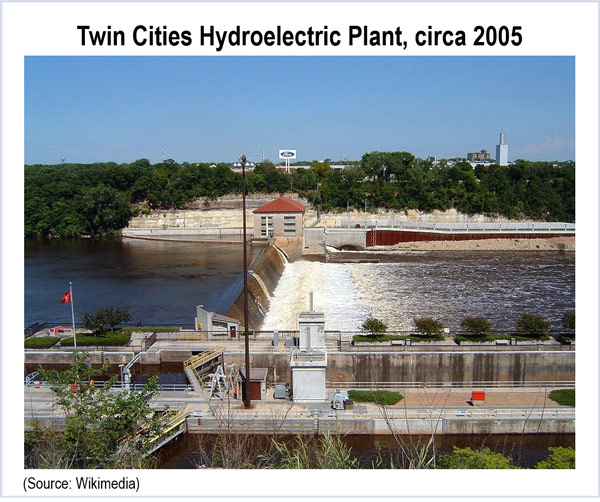By Chris O’Malley
The owners of a hydroelectric station said to have lured Henry Ford to open a vehicle assembly plant in St. Paul 90 years ago have won a regulatory victory forcing Northern States Power to keep buying its electricity.

Twin Cities’ parent, Brookfield Renewable Power, has operated the 18-MW qualifying facility on the Mississippi River since taking it over from Ford Motor Co. in 2008. Three years later, Ford closed its St. Paul plant.
Northern States Power has been obligated to buy the power under the Public Utility Regulatory Policies Act. It provides for the termination of purchasing electricity from a facility if that facility has “nondiscriminatory” access to certain types of markets.
Northern States argued that it should no longer be required to buy Twin Cities’ power because the hydro facility has been selling energy into MISO’s wholesale energy markets since 2008.
But FERC adopted “rebuttable presumptions” that a facility with a capacity at or below 20 MW does not have nondiscriminatory access to markets. The commission has maintained that such smaller facilities are often interconnected at the distribution level and thus may “lack the same level of access to markets as those connected to transmission lines.”
These smaller facilities may face obstacles such as pancaked delivery rates and administration burdens to access distant buyers, FERC said.
FERC ruled that Northern States failed to demonstrate that the Minnesota hydro facility has non-discriminatory access to both energy and capacity markets.
Northern States “thus acknowledges that the Twin Cities [facility] cannot, at present, access the MISO capacity market. In contrast to the MISO energy market, [Twin Cities] has no history of sales into the MISO capacity market,” FERC said in its decision.
Twin Cities said because it is interconnected through Northern States’ distribution system, it would have go through the MISO interconnection process to obtain network resource interconnection service, at considerable cost and time.
“Here, both NSPM and Twin Cities note that transmission constraints exist which will directly impact the Twin Cities [facility’s] access to the MISO capacity market.”
The facility’s dam was completed in 1917 by the U.S. Army Corps of Engineers. Ford added the hydroelectric generating station in 1924.
Brookfield Renewable Power operates 7,000 MW of hydro capacity on 74 river systems in 14 power markets in North America, Latin America and Europe.


